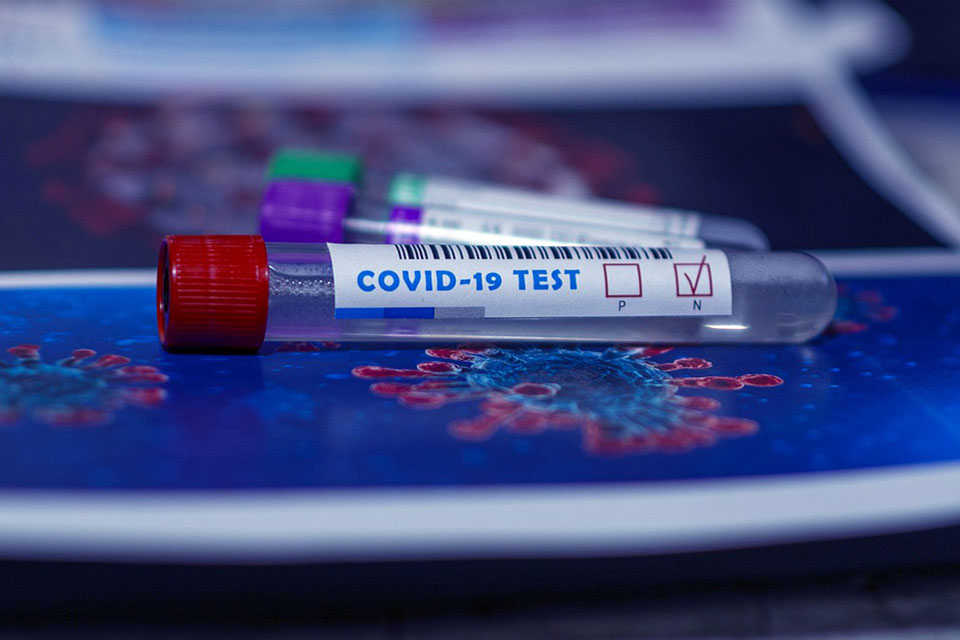SOP’s Pandit Awarded $25,000 AFPE-NACDS Foundation Fellowship
Award will support new program designed to improve medication adherence among patients with HIV as well as facilitate communication among patients’ health care providers.
By Sean Cooper
August 4, 2014
Neha Pandit, PharmD, BCPS, AAHIVP, associate professor in the Department of Pharmacy Practice and Science (PPS) at the University of Maryland School of Pharmacy, has been awarded the 2014 Pharmacy Faculty Development Fellowship in Community Pharmacy Practice – Medication Adherence by the American Foundation for Pharmaceutical Education (AFPE) and the National Association of Chain Drug Stores (NACDS) Foundation. This award — which includes a $25,000 stipend that Pandit will use to evaluate a new program designed to improve medication adherence in patients with human immunodeficiency virus (HIV) — is presented to only one pharmacy faculty member in the United States each year.
“As Dr. Pandit’s mentor, it fills me with a great sense of pride to know that she has been chosen as this year’s recipient of the AFPE-NACDS Foundation’s Pharmacy Faculty Development Fellowship in Community Pharmacy Practice,” says Magaly Rodriguez de Bittner, PharmD, BCPS, CDE, FAPhA, professor and chair of PPS. “Dr. Pandit’s ability to think ‘outside the box’ to address one of the greatest challenges faced by patients with HIV is commendable, and has led to the creation of an innovative program that will improve not only patients’ adherence to medications, but also communication and cooperation among all members of the health care team, including community pharmacists and pharmacists at outpatient clinics. I look forward to seeing the impact that this program will have on the lives of her patients.”
In the United States more than 1.1 million people are currently living with HIV. Sixteen percent are unaware that they have the disease. Improving patients’ adherence to antiretroviral medications is a critical factor in the fight against this potentially life-threatening illness.
“For many illnesses, research indicates that patients who are 80 percent adherent to their medications will experience positive health outcomes,” says Pandit. “However, patients with HIV need to maintain approximately 95 percent adherence to experience comparable outcomes. Patients with HIV who do not adhere to their medications as prescribed risk developing a permanent resistance to those drugs, which means they can never use them again.”
Currently, there is a lack of clinical tools available to effectively gauge how well patients adhere to their medications and allow health care providers to make the necessary interventions to improve their adherence. In 2012, the Maryland Medicaid Program launched an alert system in pharmacies across the state that notifies the pharmacist when a patient fills his or her antiretroviral medications more than 16 percent beyond his or her last intended day’s supply. Although the patient still receives his or her medication, the system prompts the pharmacist to counsel the patient and communicate the lack of adherence to his or her health care provider.
“When a community pharmacist contacts a health care provider’s office, they typically speak to the first person who answers the phone,” says Pandit. “There is no guarantee that they will have the opportunity to speak with the provider directly or if the patient about whom they are concerned will be seen by the provider that day. Through the AFPE-NACDS Fellowship, my goal is to develop a standardized process – starting with patients with HIV – that will allow pharmacists to communicate important adherence information directly to patients’ health care providers.”
She adds, “Having a process in place will help providers know in real-time whether their patients are adhering to their medications and determine whether any proactive decisions need to be made about their drug therapy.”
Pandit has established a partnership between her practice site at the University of Maryland’s Evelyn Jordan Center and the University Pharmacy on Redwood through which pharmacists at the University Pharmacy on Redwood, using the program put in place by the Maryland Medicaid Program, notify her when patients with HIV from her practice site do not fill their medications as prescribed. As a clinical pharmacy specialist, she can access those patients’ medical records, which she updates to reflect the information provided by the pharmacy.
“This partnership allows me to serve as a liaison between the patient’s community pharmacist and his or her health care provider at the clinic,” says Pandit. “I can ensure that the provider is immediately notified that a particular patient is not adhering to his or her medication by contacting him or her directly via our electronic health care record. During the patient’s next office visit, the provider will see my message in the patient’s chart, which will prompt him or her to counsel the patient about medication adherence.”
Kathy Vranek, PharmD, ambulatory operations manager at the University Pharmacy on Redwood, who is collaborating with Pandit in this process, adds, “As health care providers, we know that providing quality team-based care to our patients can help them achieve positive health outcomes. However, providing this type of care can often be very challenging. Dr. Pandit’s project represents a truly collaborative effort that not only involves the entire health care team, but also addresses the challenges faced by a particularly vulnerable population, including patients affected by homelessness, substance abuse, poor health care literacy, and poor social support systems. I am eager and excited to be a part of this project.”
To help measure the success of this new process, Pandit will examine patients’ medication possession ratios — a calculation made using the patients’ refill data as provided by the pharmacy — to assess whether patients begin refilling their prescription as prescribed as a result of the enhanced communication between the community pharmacy and patient’s health care provider.
Kimberly Allen, CPhT, lead ambulatory pharmacy technician at the University Pharmacy on Redwood, who will also collaborate with Pandit on this project, says, “Ensuring that patients remain adherent to their antiretroviral medications is extremely important in the pharmacy setting. Through our collaboration with Dr. Pandit, we hope to continue building our rapport with patients, particularly those with HIV. We want them to feel comfortable discussing all of their medication-related issues with us, allowing us to ensure that other members of the health care team are aware of those problems and that we provide any necessary interventions to help them achieve the best possible health outcomes.”
“This process is just the beginning,” says Pandit, who hopes to expand her efforts to include other clinics and other disease states. “I’m truly grateful to both AFPE and the NACDS Foundation for naming me as their 2014 fellow and am excited to continue my passion of improving medication adherence among patients with HIV.”



